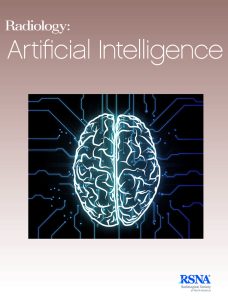
Nurse leader Jeanine Gordon gives nurse Emma Devlin the COVID-19 vaccination. Photo: Richard DeWitt.
A small but significant number of people experience swollen lymph nodes as a side effect of receiving a COVID vaccine. This can look like a clinically significant finding on cancer imaging, including chest CTs, PET scans, mammography, and breast MRI. In response, radiologists from MSK and three other institutions recently published recommendations for cancer imaging and COVID vaccination.
As reported by Reuters and the Associated Press, the authors recommend scheduling routine cancer imaging screenings either before vaccination or six weeks after. But patients should not delay getting either the vaccine or clinically urgent imaging. Cancer patients should receive the vaccine in the arm opposite the active or suspected cancer. Medical staff should ask patients receiving imaging about their vaccine history, including the date of vaccination and the side of the body vaccinated. If enlarged lymph nodes appear on imaging, radiologists may request follow up images or, in a small number of cases, biopsy.
Want to learn more about MSK’s COVID-related research? Visit Synapse, the Library’s database of MSK-authored publications, for a full list of COVID-related works.
Want to know more about COVID vaccination? Visit MSK’s info page.
 Radiology: Artificial Intelligence, published by the Radiological Society of North America. This eJournal highlights the emerging applications of machine learning and artificial intelligence in the field of imaging across multiple disciplines.
Radiology: Artificial Intelligence, published by the Radiological Society of North America. This eJournal highlights the emerging applications of machine learning and artificial intelligence in the field of imaging across multiple disciplines.
